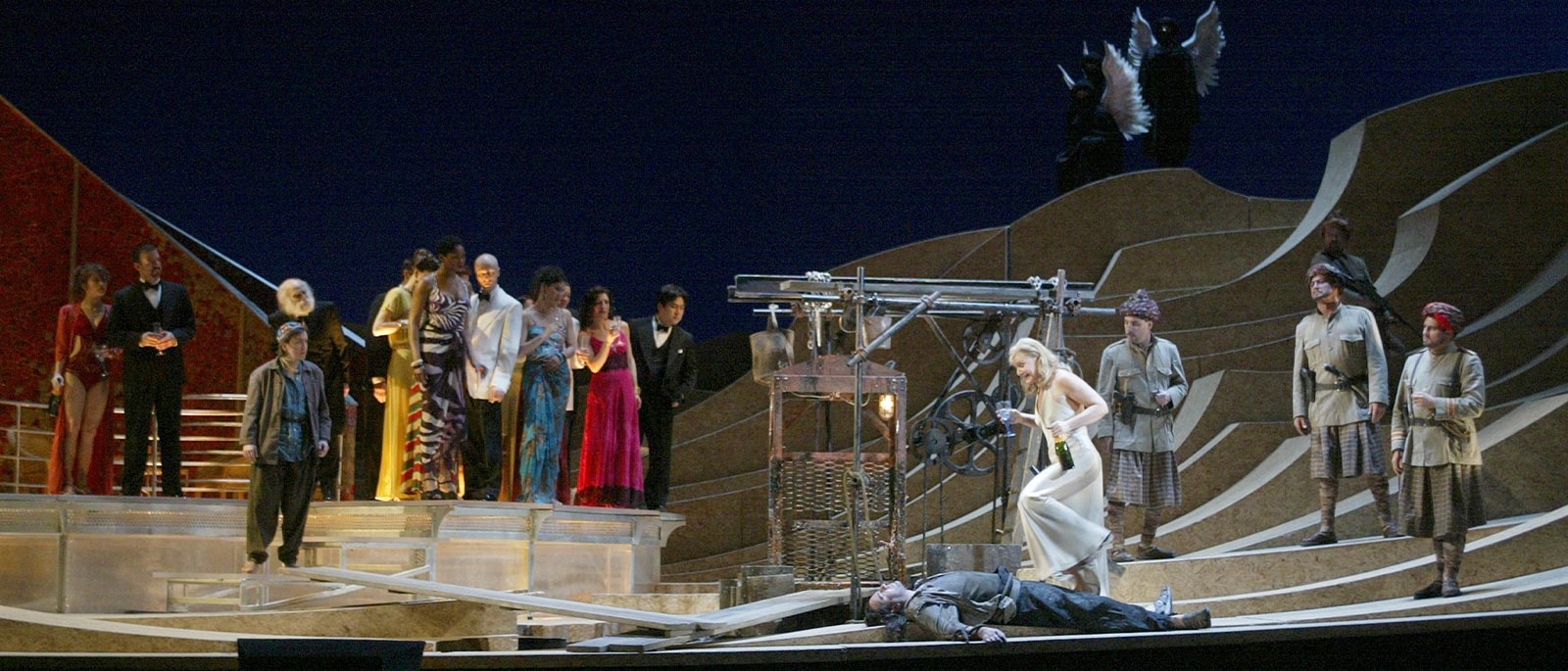
Orpheus resolves to go to the underworld and bring Eurydice back. Orpheus then lowers the collected works of Shakespeare on a string, and her father reads it to her, helping her to relearn language. The name of Orpheus helps her to regain her memory and recognize her father. It flutters down to the underworld, where her father reads it to her. In the land of the living, Orpheus mourns Eurydice's death and writes her a letter, but does not know how to get it to her he decides he might give it to a worm. Her father greets her, but she does not know who he is. The three Stones, a kind of Greek chorus, explain that Eurydice has crossed the river of forgetfulness (which is portrayed as a shower in the elevator descending to the underworld), and now has no memory and no power of language. She tries to grab it but trips and falls down a long flight of stairs to her death in the underworld.

After giving her champagne, he shows her the letter from her father. A mysterious "interesting man" appears and invites her to his apartment. At her wedding, Eurydice steps outside and expresses a wish to see more interesting people. Her deceased father is seen in the underworld, writing a letter to her and wondering how to get it delivered. Orpheus proposes to Eurydice and she accepts.

Orpheus, a musician, and Eurydice are playing on the beach. I'm interested in her voice, a voice that hasn't been heard before." Act 1 Ruhl explained that "in the myth, we never hear from Eurydice – she is always a cipher. This opera retells the legend of Orpheus and Eurydice from Eurydice's point of view. The Los Angeles Times noted that this production, "the world's newest major opera", is on the same subject as the world's oldest surviving opera, Jacopo Peri's Euridice, which premiered 420 years earlier in 1600. The work was co-commissioned and co-produced by the Metropolitan Opera, and was mostly written while Aucoin was serving as the Los Angeles Opera's artist in residence.


 0 kommentar(er)
0 kommentar(er)
